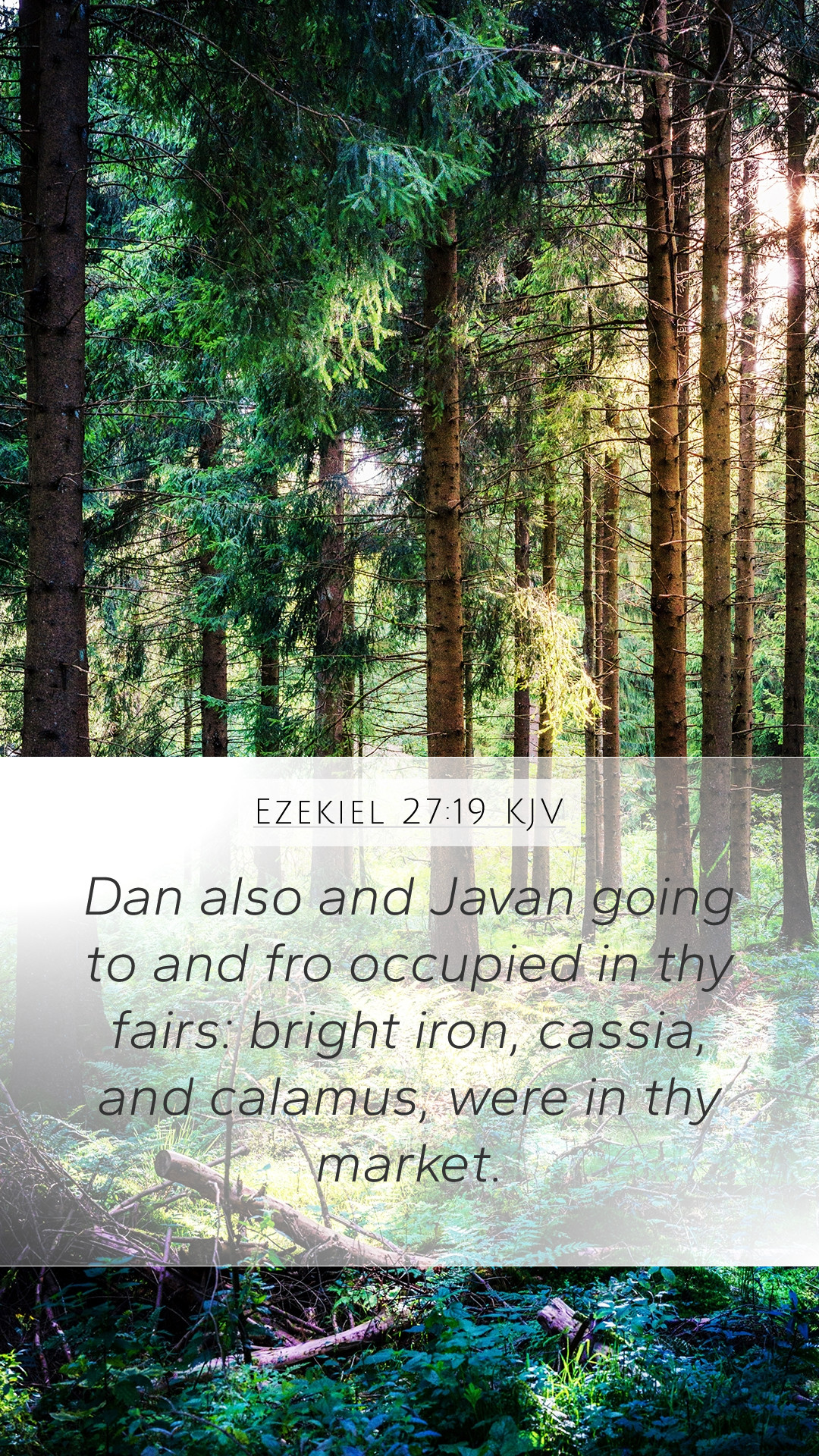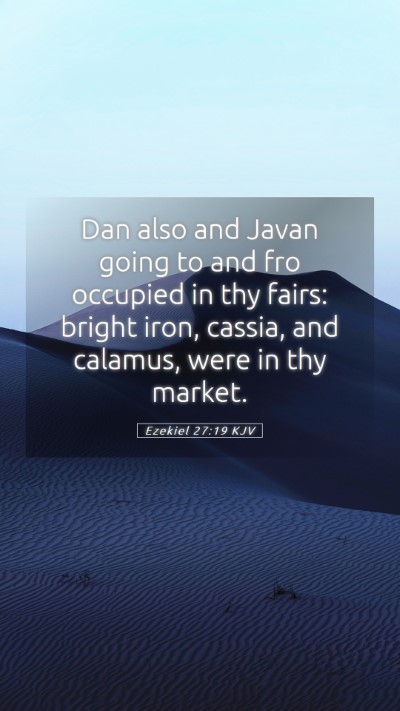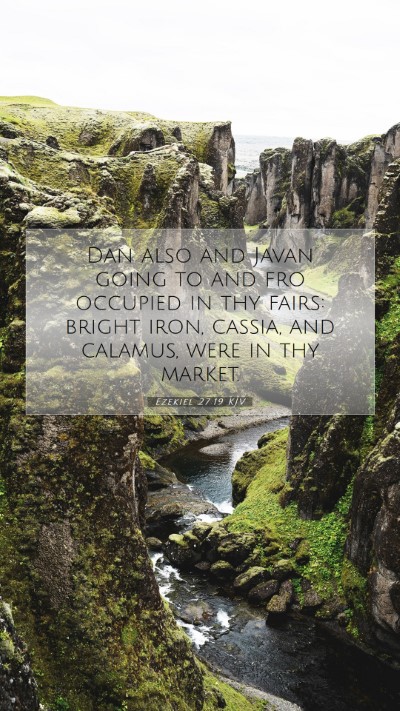Ezekiel 27:19 - Understanding the Verse
Ezekiel 27:19 states: "Dan also and Javan going to and fro occupied in thy fairs: bright iron, cassia, and calamus were in thy market." This verse is part of a larger passage where the prophet Ezekiel is delivering a lamentation over the city of Tyre, portraying its extensive trade and commercial connections.
Verse Analysis and Commentary
The mention of "Dan" and "Javan" signifies regions involved in trade. The insights from Matthew Henry suggest that Dan, located in the north, represented the tribes of Israel, and its mention as a trading partner signifies the integration of Israel into the commerce of the world. Albert Barnes elaborates on "Javan," which refers to the Greek lands, indicating that Tyre had far-reaching commercial relationships throughout the Mediterranean, engaging in luxuries and commodities.
Adam Clarke points out that the specific references to "bright iron, cassia, and calamus" indicate the exotic and valuable goods traded through Tyre. This imagery paints a picture of wealth and prosperity that comes from extensive trading networks. The inclusion of such items not only highlights Tyre’s affluence but also foreshadows its impending judgment for pride and idolatry.
Spiritual and Theological Insights
This verse can be viewed through different theological lenses. Here are some key observations:
- Significance of Trade: The extensive trade suggests how human civilizations connect and rely on one another, highlighting the role of commerce in societal development.
- Warning Against Pride: The prosperity of Tyre is soon followed by their downfall, teaching that earthly wealth can lead to spiritual complacency and divine judgment.
- Symbolism of Goods: The goods mentioned represent not just material wealth but the broader idea of what we value and pursue, inviting readers to reflect on their priorities in life.
Practical Application and Reflection
For readers today, Ezekiel 27:19 invites contemplation on the following:
- How do our commercial pursuits reflect our values? This verse encourages self-examination about what we seek in our lives—are we pursuing temporal wealth or eternal significance?
- Recognizing the transient nature of material wealth: Just as Tyre faced judgment despite its riches, we are reminded of the biblical teaching that "You cannot serve both God and money" (Matthew 6:24).
- Our place in God's plan: As different nations and tribes came together in commerce, we must consider our interconnectedness in God’s greater vision for humanity.
Related Cross References
- Isaiah 23:1-18: A parallel lamentation over Tyre, illustrating its fall.
- Ezekiel 28:1-19: God's judgment against the ruler of Tyre.
- Revelation 18:10: The fall of Babylon and the warning against commercial excess.
Conclusion
This segment of Ezekiel serves as a strong reminder of how wealth and earthly pursuits, while not inherently evil, can lead us away from spiritual truths if prioritized above our relationship with God. The commentary provided from respected sources enriches the understanding of this verse, offering layers of insight into its meaning.
Through biblical exegesis and careful study, believers can find profound meanings and applications for life in these verses. The significance of Ezekiel 27:19 transcends time, reiterating essential themes of reliance on God and the dangers of pride in materialism that endure even in contemporary contexts.


